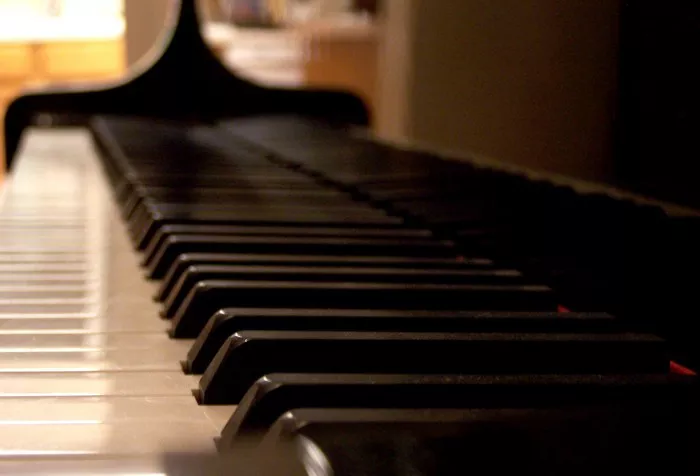The grand piano, an epitome of elegance and excellence in the world of music, boasts a distinguished presence on concert stages and in prestigious institutions worldwide. Characterized by its horizontal frame and majestic soundboard, the grand piano stands as a testament to centuries of craftsmanship and innovation. With its distinctive design and unparalleled resonance, the grand piano remains the instrument of choice for discerning pianists and enthusiasts alike.
Grasping Octaves: The Building Blocks of Music
Octaves, a fundamental concept in music theory, serve as the building blocks of melody, harmony, and rhythm. An octave represents the distance between two pitches where the higher note vibrates at twice the frequency of the lower note, resulting in a harmonious relationship. This interval spans eight notes within the chromatic scale, encompassing both white and black keys on the piano keyboard. Understanding octaves is essential for pianists to navigate the instrument’s range and unlock its full potential.
How Many Octaves on a Grand Piano?
A grand piano typically encompasses a wide range of octaves, allowing pianists to explore a vast spectrum of musical expression. The exact number of octaves varies depending on the size and model of the grand piano. However, as a general guideline, most grand pianos consist of approximately seven to nine octaves. This expansive range enables pianists to traverse the low rumblings of the bass register to the shimmering heights of the treble, covering a span of over seven octaves in total.
Making the Most of Octaves on a Grand Piano
1. Exploring Range and Dynamics
The generous range of octaves on a grand piano empowers pianists to explore a diverse range of musical genres and styles. From thunderous bass lines in classical compositions to delicate treble melodies in jazz improvisation, each octave offers a unique palette of tonal colors and expressive possibilities. By mastering the full range of the instrument, pianists can achieve dynamic contrasts and nuanced interpretations that captivate audiences and elevate performances to new heights.
2. Embracing Chordal Complexity
Octaves play a crucial role in the formation of chords, the harmonic foundation of music. Pianists can utilize octaves to enrich chordal textures and create lush harmonies that resonate throughout the grand piano’s soundboard. By incorporating octaves into chord voicings and arpeggios, pianists can craft intricate harmonic progressions and evoke emotive depth in their compositions and arrangements. Whether crafting intricate jazz chords or cascading classical arpeggios, the versatility of octaves enhances the pianist’s ability to convey musical expression with finesse and flair.
3. Mastering Technical Proficiency
The mastery of octaves is integral to developing technical proficiency and virtuosity on the grand piano. Pianists often encounter passages that require rapid octave leaps and precise coordination between hands, challenging both dexterity and accuracy. Through diligent practice and focused exercises, pianists can refine their technique and navigate octave passages with agility and precision. Whether executing octave scales with fluidity or performing intricate octave runs with clarity, honing octave skills is essential for pianists striving for excellence in their craft.
4. Expressive Interpretation and Artistry
Beyond technical prowess, the artistry of pianists shines through in their interpretation and expression. Octaves serve as vehicles for conveying emotion and narrative in musical performance, allowing pianists to imbue each note with intention and meaning. Whether conveying the grandeur of a majestic symphony or the intimacy of a lyrical ballad, pianists harness the power of octaves to communicate with audiences on a profound level. By infusing their playing with nuance, phrasing, and dynamic shading, pianists transform mere notes into captivating musical experiences that resonate deeply with listeners.
Conclusion
In the realm of grand pianos, octaves represent not only a fundamental musical concept but also a gateway to limitless artistic expression. With their expansive range and expressive potential, octaves empower pianists to transcend technical limitations and convey the depth of human emotion through music. By understanding the intricacies of octaves and harnessing their full potential, pianists can unlock a world of creativity and innovation on the grand piano, captivating audiences and leaving a lasting legacy in the annals of musical history.


